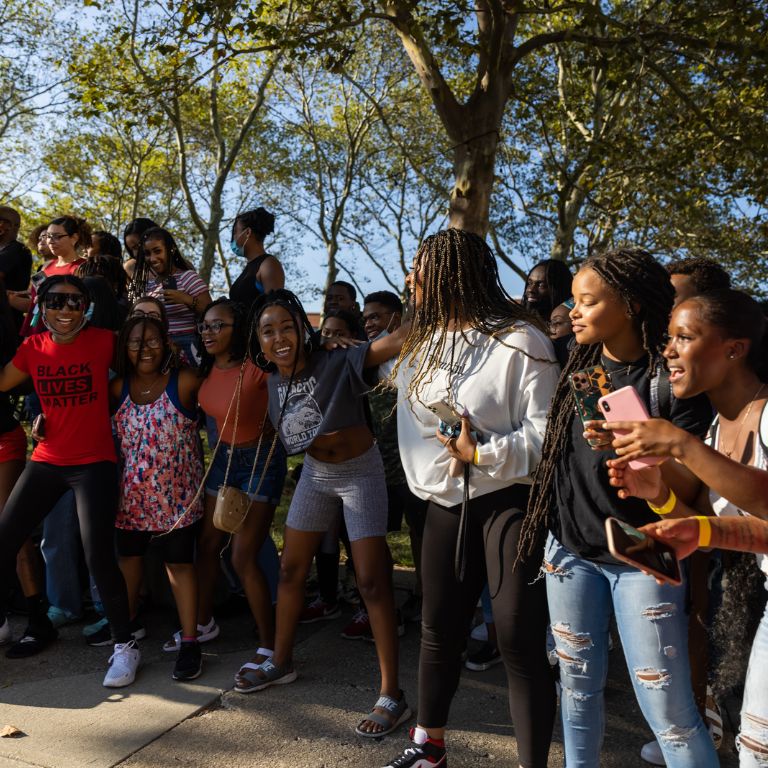The history behind Juneteenth
Juneteenth has held importance in the souls of Black Americans since the summer of 1865. The emancipation of enslaved people on June 19 of that year is linked to a bittersweet feeling – the joy of obtaining 'freedom' and the resentment of having ancestors be subjected to hate, discrimination and inhumane treatment. In 1863, Abraham Lincoln issued a proclamation to free enslaved Black Americans. However, enslaved Black Americans in Galveston, Texas did not learn of their freedom until two years later.
Although an order was given to inform enslaved Black Americans of their freedom, members of Galveston, Texas ignored the directive and were later ordered to follow suit. However, the harsh reality is many Black Americans still face obstacles in our society as we continue to fight for conditional 'freedom.' This is a reminder of the lack of equal treatment Black Americans have faced and continue to face.
How Juneteenth became a federal holiday
In June 2021, congress passed the Juneteenth National Independence Day Act – making it a federal holiday. This is an exciting time for many, but a reminder that non-Black individuals will benefit from the "day off" with little to no understanding of what this means to Black communities and the ancestors of those who never experienced 'Juneteenth' prior to 1865.
As we approach this holiday, take note that the 'American pride' many will celebrate on July 4 could not be possible without acknowledging the history of those who were bound by the mistreatment of slaveowners prior to June 19, 1865. In short, the freedom many enjoy was built on the backs of enslaved Black bodies. We can no longer allow the celebration of a holiday without the recognition of those who were enslaved as they built the freedom they never experienced.
Why Juneteenth is important to IUPUI
As the inaugural Director of Diversity, Equity, and Inclusion for the Division of Student Affairs at IUPUI, I recognize my responsibility to engage in discussions, programming, trainings, and efforts related to creating a fair and just society. I am charged to engage in educating populations about the experiences of those who were and are historically excluded.
For hundreds of years, enslaved Black Americans waited for change, understanding, and the 'freedom' promised to them. In this role, I aim to educate and create opportunities to eradicate historically oppressive systems that impact our campus, surrounding communities, and global partners. One of my first charges is to provide our campus with an understanding of the inaugural celebration of Juneteenth.
How to celebrate and honor Juneteenth
I remind each reader that although this holiday is now recognized by the federal government, it is not a new celebration for Black Americans. Attending events around Indianapolis, the state of Indiana, or anywhere else must be connected to educational opportunities. In the words of a professor in the School of Education, engaging and understanding a culture is more than "food, fun, and festival[s]." For those who lack the understanding of this holiday, locate resources that challenge you to decenter yourself and put you in a place to listen, ask questions of clarity, and be a consumer of knowledge.
This is a holiday to understand the experiences of those who are impacted and provide education to the generations to come. Use this time to be intentional about the spaces you occupy and the people who will be impacted. To those celebrating Juneteenth and providing opportunities to be educated, thank you. To those who are attending events to show support, thank you. To those who are showing up to celebrate their Black identity, thank you.



